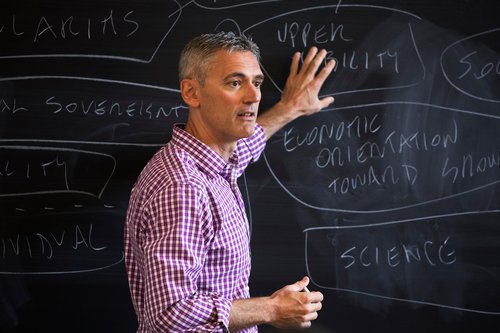Endowed Chairs

The Charles A. Dana Professorship
The Dana Professorship is the longest-standing endowed chair program at Bates. In 1966 the Charles A. Dana Foundation of New York awarded the college a matching grant to establish an endowed professorship fund that would recognize exceptional teacher-scholars among the Bates faculty. The first Dana professor was named in 1968. Over the next half century, a distinguished group of faculty members has been honored with Dana professorships and recognized for their exemplary teaching, the value of their research, and their service to the college. Between three and seven Dana professors may hold the honor at any one time. Dana professors may hail from any discipline, underscoring the depth of talent of the Bates faculty.
Francesco Duina, Professor of Sociology
Francesco Duina joined the Bates faculty in sociology in 2000. He teaches Theoretical Foundations of Sociology, Macrosociology, Comparative Sociology, Economic Sociology, Political Sociology, European Integration, and Populism in the Age of Globalization, among other courses. He has taught at the University of British Columbia, where he chaired the sociology department, and has been a visiting scholar at the College of Europe, Copenhagen Business School, and Yonsei University (South Korea), and he leads Bates’ partnership in the Jean Monnet Network on Transatlantic Trade Politics. His research examines international political economy, international organizations, and American society. His books include Harmonizing Europe: Nation States and the Economy of the Common Market; The Social Construction of Free Trade: The EU, NAFTA, and Mercosur; Institutions and the Economy; Winning: Reflections on an American Obsession; Life Transitions in America; and Broke and Patriotic: Why Poor Americans Love Their Country, and he has authored 30 articles and 18 book chapters. He has served as chair of sociology and is the division chair for the social sciences.

